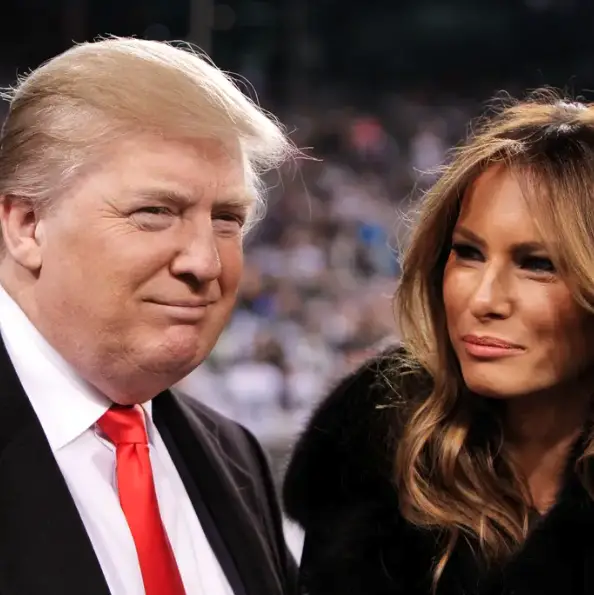President Donald Trump signed the Take It Down Act into law on May 19, 2025, with First Lady Melania Trump joining him in a symbolic signing ceremony at the White House Rose Garden. The legislation makes it a federal crime to knowingly publish or threaten to publish intimate images without a person’s consent, including AI-generated deepfakes.
The bill passed the House in April by a 409-2 vote after clearing the Senate by unanimous consent in February. The legislation requires social media companies and websites to remove such material within 48 hours after a victim requests it, and platforms must also take steps to delete duplicate content.
Melania Trump played an instrumental role in advancing the legislation, making her first solo public appearance in March to travel to Capitol Hill and lobby House members to pass the bill. She participated in a roundtable with lawmakers and young women who had explicit images of them put online, describing the experience as heartbreaking to witness what teenagers, especially girls, endure after such violations occur.
During the signing ceremony, the First Lady characterized the new law as a national victory that will help parents and families protect children from online exploitation. She emphasized that artificial intelligence and social media represent digital candy for the next generation, describing them as sweet, addictive and engineered to impact children’s cognitive development. Trump encouraged her to sign the document alongside him, stating “She deserves to sign it.”
The legislation addresses both authentic intimate images and computer-generated deepfakes created without consent. Under the law, anyone who distributes such content faces up to three years in prison. The bill specifically targets the online publication of explicit visuals featuring adults where publication is intended to cause harm and was published without consent, or in cases where the subject had a reasonable expectation of privacy.
Senator Ted Cruz and Senator Amy Klobuchar co-sponsored the bipartisan measure, which received praise from lawmakers across party lines. Cruz characterized the legislation as an historic win for victims of revenge porn and deepfake image abuse, noting that predators who weaponize technology to post exploitative content will now face criminal consequences. The bill also prevents technology companies from turning a blind eye to the spread of such material.
The White House described the signing as a landmark step in the fight to protect victims of digital exploitation. Several advocacy organizations attended the ceremony, including representatives from the National Center for Missing and Exploited Children, who noted the law closes a dangerous gap by targeting distribution of both real and digitally altered exploitative content involving children.
Major technology companies including Meta, TikTok, Snapchat and Google expressed support for the legislation. X CEO Linda Yaccarino attended the signing ceremony and indicated her platform will continue working alongside lawmakers and organizations to make the internet safer, especially for children.
However, the measure faces criticism from digital rights organizations who argue the legislation is too broad and could lead to censorship of legitimate content. The Electronic Frontier Foundation warned that the bill’s notice-and-takedown system threatens free expression, user privacy and due process without adequately addressing the underlying problem. Critics express concern that the 48-hour removal requirement could result in automated filters flagging legal content including journalism and political speech.
The legislation represents a continuation of Melania Trump’s Be Best campaign from the previous administration, which focused on children’s well-being, social media use and opioid abuse. She specifically thanked Elliston Berry, a 14-year-old victim of nude deepfakes who advocated for survivors after authorities initially told her the situation was beyond their control.
Multiple state attorneys general praised the new federal law, with South Carolina Attorney General Alan Wilson noting that no one should live in fear of having private moments weaponized against them. The legislation provides federal criminal penalties for what he described as a cruel and deeply violating crime that has previously seen law enforcement tools lag behind technology.
The Take It Down Act represents one of the most significant technology regulations enacted during Trump’s second term, demonstrating rare bipartisan cooperation on digital safety issues. The Federal Trade Commission will have enforcement authority over the new requirements for social media platforms and websites.

